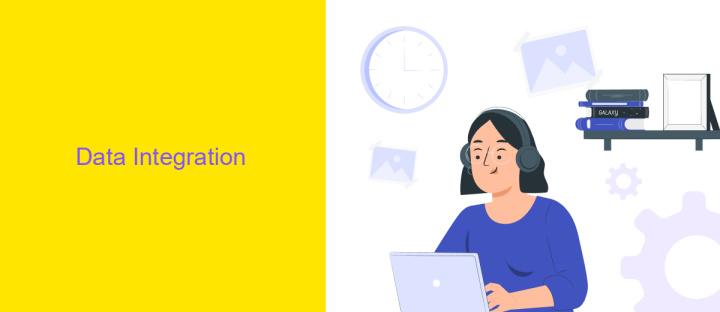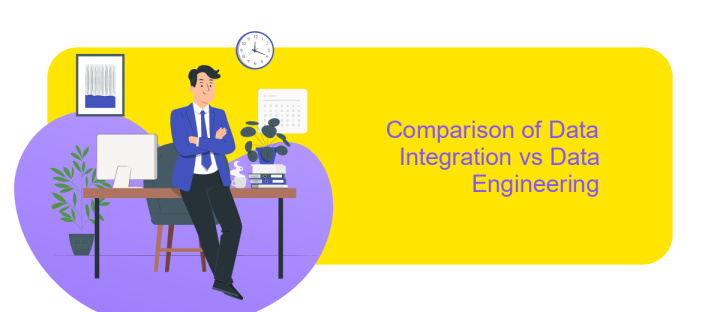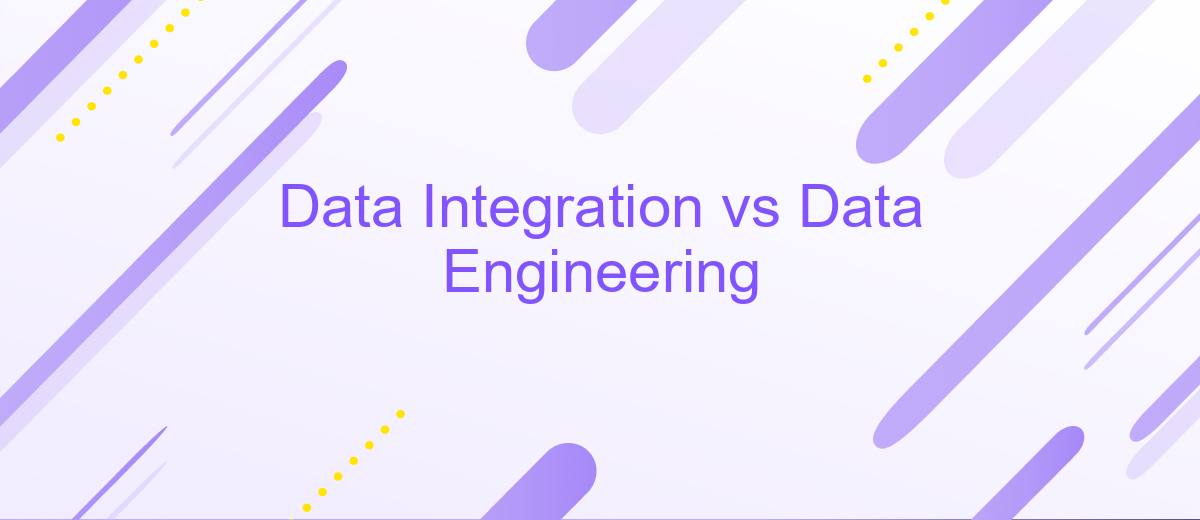Data Integration vs Data Engineering
In today's data-driven world, the terms "Data Integration" and "Data Engineering" often surface in discussions about managing and utilizing vast amounts of information. While both play crucial roles in the data lifecycle, they serve distinct purposes and require different skill sets. This article delves into the core differences, highlighting the unique functions and importance of each discipline.
Introduction
The realms of data integration and data engineering are essential components in the modern data landscape, yet they serve distinct purposes and require different skill sets. Data integration focuses on combining data from various sources to provide a unified view, which is crucial for analytics and decision-making. On the other hand, data engineering involves the design, construction, and maintenance of systems and architectures that enable data processing and storage.
- Data Integration: Combines data from multiple sources.
- Data Engineering: Builds and maintains data infrastructure.
Understanding the differences and intersections between data integration and data engineering is critical for organizations aiming to leverage their data effectively. While both fields aim to optimize the use of data, they do so through different methodologies and tools. This article explores these differences, helping you to better appreciate the unique contributions of each discipline in the data ecosystem.
Data Integration

Data integration is the process of combining data from different sources to provide a unified view. This is crucial for businesses that rely on diverse data sets to make informed decisions. By integrating data, organizations can ensure consistency, accuracy, and accessibility, which in turn enhances data analysis and reporting. Effective data integration involves the use of various techniques and tools to merge, cleanse, and transform data into a cohesive dataset.
One of the tools that facilitate seamless data integration is ApiX-Drive. ApiX-Drive allows users to connect multiple applications and services without the need for coding. It automates data transfer between systems, ensuring that data is synchronized and up-to-date. This not only saves time but also reduces the risk of errors associated with manual data handling. By leveraging ApiX-Drive, businesses can streamline their data workflows and focus on deriving actionable insights from their integrated data.
Data Engineering

Data Engineering is a critical field in the realm of data management and analytics. It involves the development and maintenance of architectures, such as databases and large-scale processing systems. Data engineers are responsible for ensuring that data is accessible, reliable, and properly formatted for analytical or operational use.
- Designing and building data pipelines to collect, process, and store data.
- Ensuring data quality and integrity through validation and cleansing processes.
- Implementing data security measures to protect sensitive information.
- Optimizing data storage solutions for performance and cost efficiency.
- Collaborating with data scientists and analysts to understand data needs and requirements.
Data engineers play a pivotal role in transforming raw data into actionable insights. They work closely with various stakeholders to ensure that the data infrastructure supports the organization's goals. Mastery in programming, database management, and cloud technologies are essential skills for success in this field.
Comparison of Data Integration vs Data Engineering

Data Integration and Data Engineering are two critical aspects of managing and utilizing data within an organization. While they are often mentioned together, they serve distinct purposes and involve different processes. Understanding these differences is essential for effectively leveraging data in any business setting.
Data Integration focuses on combining data from various sources into a unified view, making it accessible and useful for analysis and decision-making. Data Engineering, on the other hand, involves the design, construction, and maintenance of data architectures and pipelines to ensure data is collected, stored, and processed efficiently.
- Scope: Data Integration deals with unifying data, while Data Engineering covers the entire data lifecycle.
- Tools: Data Integration uses ETL tools, whereas Data Engineering employs databases, data warehouses, and big data technologies.
- Skills: Data Integration requires knowledge of data mapping and transformation, while Data Engineering demands expertise in data architecture and programming.
Both Data Integration and Data Engineering are vital for a robust data strategy. While Data Integration ensures that data from disparate sources is harmonized, Data Engineering provides the infrastructure needed to manage and process this data efficiently.
- Automate the work of an online store or landing
- Empower through integration
- Don't spend money on programmers and integrators
- Save time by automating routine tasks
Conclusion
In conclusion, the distinction between data integration and data engineering is crucial for organizations aiming to optimize their data management strategies. Data integration focuses on combining data from various sources into a unified view, facilitating seamless access and analysis. In contrast, data engineering involves the design and construction of systems for collecting, storing, and processing data, ensuring that data is reliable and accessible for analytical purposes. Both disciplines are essential, yet they serve different roles within the data ecosystem.
Tools like ApiX-Drive can significantly streamline the process of data integration by automating the transfer and synchronization of data between various platforms. This allows data engineers to focus on building robust data pipelines and infrastructure, while data integration tools ensure that data from disparate sources is consistently and accurately merged. By leveraging these specialized tools and understanding the unique contributions of each discipline, organizations can create a more efficient and effective data management framework.
FAQ
What is the difference between Data Integration and Data Engineering?
Why is Data Integration important in businesses?
What skills are needed for Data Engineering?
How can businesses automate Data Integration processes?
What are the common challenges in Data Engineering?
Apix-Drive will help optimize business processes, save you from a lot of routine tasks and unnecessary costs for automation, attracting additional specialists. Try setting up a free test connection with ApiX-Drive and see for yourself. Now you have to think about where to invest the freed time and money!


